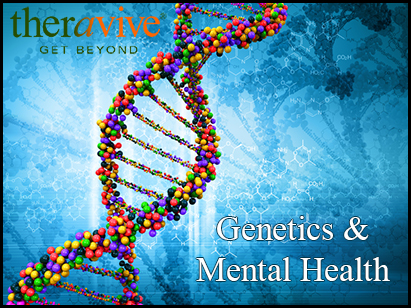September 21, 2021
by Patricia Tomasi

A new study published in the Journal of Translational Psychiatry looked at a combined clinical and genetic approach to the assessment of suicide and death in bipolar affective disorder. “When we think about the risk for suicide, we often think about what is happening in a person’s life at the time: the loss of a job, a major change in a relationship,” study author Eric Monson told us. “Not many people are aware that genetics play an important role in risk. In fact, the heritability for suicidality is estimated to be 30-50%, meaning that a significant proportion of risk arises from genetic sources.”
[More]
June 26, 2021
by Elizabeth Pratt

Women at increased risk of postpartum psychosis show altered connectivity in networks of the brain responsible for planning, organisation and the completion of short and long-term tasks. Currently, there are no biological markers that identify who will develop postpartum psychosis. But researchers from King’s College London have identified altered connectivity in the brain networks of women with postpartum psychosis, which could pave the way for better identifying women at risk of the condition.
[More]
June 1, 2021
by Patricia Tomasi

Bipolar disorder is a mental illness that includes depressive and manic episodes. It affects about two per cent of people around the globe. The first line of treatment for bipolar disorder is a drug called lithium. Unfortunately, about 70 per cent of bipolar disorder patients don’t respond to it. A new study looked at whether genes had a role to play in lithium response in bipolar disorder patients.
[More]
April 29, 2019
by Elizabeth Pratt

Children who grow up in poor neighbourhoods are at an increased risk of developing a psychosis-spectrum mental illness like schizophrenia or bipolar disorder by the time they reach middle adulthood. Researchers say the finding of the study suggest interventions aimed at improving neighbourhoods and assisting children displaying atypical social characteristics could prevent the conditions from developing.
[More]
September 1, 2018
by Elizabeth Pratt

Having a former smoker in their social circle may help those with serious mental illness quit smoking
[More]
Bipolar Disorder impacts every aspect of a person’s life, including work and relationships, but it is a treatable illness, and recovery is possible. The right support and treatment can make all the difference. People with bipolar disorder can have fulfilling careers and healthy and happy relationships with family and friends.
[More]
August 11, 2014
by Dr. DeeAnn Visk

Quick: what do bipolar disorder, schizophrenia, depression, autism, and attention-deficient hyper-activity disorder all have in common? A portion of each of them can be attributed to the same genetic mutations (Cross-Disorder Group of the Psychiatric Genomics Consortium, 2014). It is not at all surprising that psychiatric disorders can be inherited. What is eye-opening is that the same genetic mutation is implicated in more than one mental illness.
[More]
I still occasionally have trouble communicating my ideas in unprepared speeches —and yes, even in some prepared speeches. But I’m OK with that. I wouldn’t trade for a second my flying ideas for walking ones. They are more than a symptom to me. They are a gift.
[More]
February 23, 2014
by bp (bipolar) Magazine

It would be great if hope could be bottled and distributed. Unfortunately, it can’t. However, hope can be shared. It’s infectious. Recovery is possible. There’s proof of this every day, all around us. Don’t feed into the stigma and negative messages. Stay positive. Keep hope alive.
[More]
February 16, 2014
by bp (bipolar) Magazine

Some people find the city overwhelming, but the intense pace keeps me going. I need the bright blinking lights of Broadway to keep me alert. I do my best writing at loud coffee shops. The medley of honking cabs and the earth-shattering subway sounds is my favorite soundtrack.
[More]